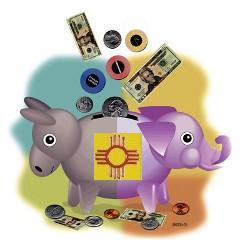It's quite obvious, isn't it? If the average cost of a studio apartment is $2500 per month, then you can just split it among four or five people to be able to afford it. Of course, then no one has much space, and you'll always be up in everyone else's grill. And this has always been a major turn off to me, especially since I've been with my boyfriend, because who wants to share such a small space with others? It's annoying and uncomfortable.
I do appreciate the values of the Bohemian lifestyle, of living simply and small, but in New York, unless you make more than 100k per year, you really are POOR. But the great thing about living with other people in a small space is that it replaces, in some small way, the vast kinship structures that humans have been accustomed to living in for thousands of years. This is what dawned on me this morning in my rushed shower.
Granted, you must become close to your roommates. They can not be anonymous people who simply come and go from a common dwelling. They have to be or become people you care about, and who take care of each other. Sort of like Friends, but less romantic and more poverty stricken. That way, if you lose your job at the local coffee shop, they can pay for rent themselves until you are able to repay them, with the understanding that you would do the same for them. Not only would this neotraditional kinship structure provide you with a financial safety net in these hard economic times, but it would also provide you with a handful of close fulfilling relationships that could be had in no other circumstances.
It is with this justification that I plan to move to New York, especially if I get into NYU or Columbia. I may look back ten years from now, and realize how wrong I was to be so naive and believe that big city anonymity and hardship could be overcome in such a simple way. But at least I will have tried... and it's much easier when you give yourself an ideological foundation on which to move.
Or if your rich, you can just buy this $50 million loft with a breathtaking view of Central Park... bastards!











%5B3%5D.jpg)














